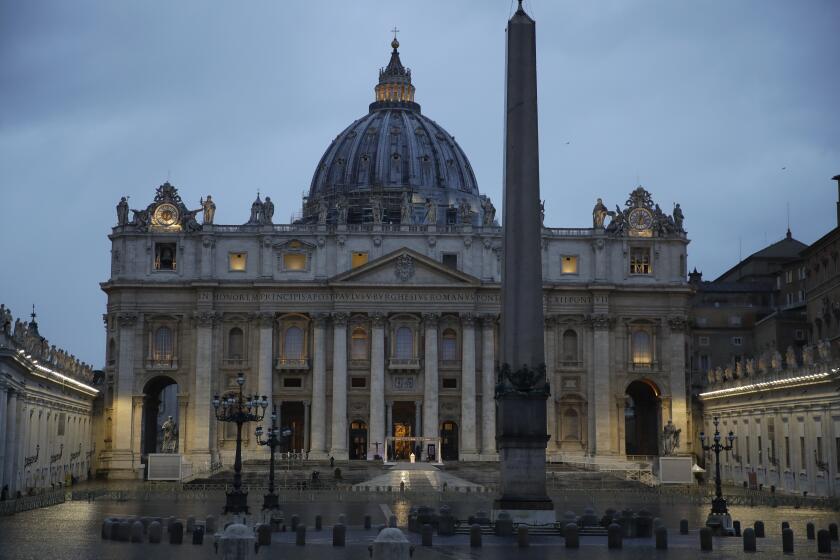Scalia’s Blind Eye
Supreme Court Justice Antonin Scalia didn’t just casually meet up with Vice President Dick Cheney for a few days of male bonding and duck shooting in Louisiana last month on a hunting trip. The judge was the vice president’s official guest. Yet Scalia still declines to recuse himself from a case before the court involving Cheney. This is a serious ethical issue that Scalia clearly wants to minimize. That cannot be done because the more that is known about the January trip, the worse it looks. The appearance of impropriety is something that ought to concern all members of the nation’s highest court.
Scalia flew to rural Louisiana with Cheney on a small government jet that served as Air Force Two. As Times staffer David Savage reported, a second Air Force jet followed with the vice president’s staff and security aides. Cheney and Scalia were then whisked away to the private hunting camp in a heavily guarded motorcade.
Such a trip should have been an easy ethical “no-no.” It’s bad enough that Scalia went hunting with the vice president, who has a case before him. It’s worse, as several legal experts have noted, that the trip was at the expense, in effect, of the vice president. Cheney is appealing the order from a lower court judge that he turn over documents from secret meetings he held in 2001 with lobbyists for oil, gas, nuclear and coal industries while formulating national energy policy. Cheney contends that his closed-door meetings did not violate an open-government law.
In mid-December, the high court voted to hear arguments in the appeal, now scheduled for April. Three weeks after that vote, Scalia and Cheney spent two days huddled together in a Louisiana marsh. Because the duck hunting was lousy, they had plenty of time to kill -- and to talk privately.
Federal rules instruct a judge to disqualify himself “in any proceeding in which his impartiality might be questioned.” Though these ethics rules apply to all federal courts, the Supreme Court does not have a formal policy for ensuring that individual justices follow them. Scalia has bristled at suggestions that he recuse himself or that his longtime friendship with Cheney -- and their many past hunting trips -- could bias his judgment.
Chief Justice William Rehnquist appears to have the same ethical blind spot, dismissing as “ill considered” the letters he received from four Democratic lawmakers questioning Scalia’s continued participation in Cheney’s case.
Yet the other seven justices must surely understand that their court’s reputation for independence, already called into question by the Bush vs. Gore decision, is now very much on the line. The majority in that case, which included Scalia, marshaled legal reasoning that can best be called a stretch to block recounts of disputed Florida ballots and put George W. Bush in the White House. Scalia’s continued participation in Cheney’s appeal will only deepen concerns that the justices put their political allegiances before the law. It’s time Scalia’s colleagues took him aside for a little chat.
More to Read
Get the L.A. Times Politics newsletter
Deeply reported insights into legislation, politics and policy from Sacramento, Washington and beyond. In your inbox three times per week.
You may occasionally receive promotional content from the Los Angeles Times.






